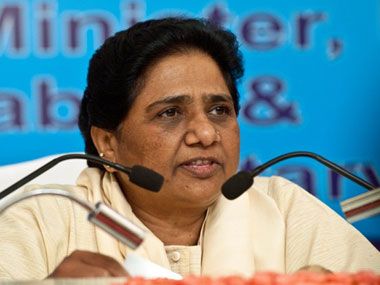Mayawati: The Champion of Dalit Politics and Social Justice

Mayawati is one of India’s most influential Dalit leaders, known for her unwavering commitment to social justice and empowerment of marginalized communities. As the first Dalit woman to serve as Chief Minister of Uttar Pradesh (UP), she redefined Indian politics by challenging caste-based discrimination and implementing progressive policies for the upliftment of the oppressed.
Early Life & Education
Born on January 15, 1956, in Delhi, Mayawati faced social and economic hardships due to her Dalit background. However, her father ensured that she received a good education. She earned degrees in Arts and Law from Delhi University and worked as a teacher before entering politics.
Her life took a major turn when she was mentored by Kanshi Ram, the founder of the Bahujan Samaj Party (BSP). Inspired by his vision of Dalit empowerment, she joined BSP and dedicated herself to fighting caste-based inequality.
Entry into Politics & Challenges Faced
- Breaking Caste Barriers: As a Dalit woman in Indian politics, Mayawati had to overcome deep-rooted biases and opposition from upper-caste leaders.
- Struggle for Political Recognition: When BSP was founded in 1984, it faced challenges in gaining political ground in UP’s caste-dominated politics.
- Threats & Opposition: She encountered threats and resistance from dominant political forces, but her determination helped BSP emerge as a powerful party.
Despite these hurdles, Mayawati remained focused on her mission of uplifting Dalits, Other Backward Classes (OBCs), and other marginalized groups.
Becoming Chief Minister of Uttar Pradesh
Mayawati created history by becoming the Chief Minister of UP four times (1995, 1997, 2002, and 2007). Each tenure was marked by policies aimed at social welfare, economic reforms, and law enforcement.
Her 2007 victory was groundbreaking, as BSP formed a majority government with the support of Dalits, Muslims, and Brahmins—a political strategy known as "social engineering."
Key Policies & Achievements
- Dalit Welfare & Reservation Policies: Strengthened reservation policies in education and jobs to provide better opportunities for Dalits and OBCs.
- Infrastructure Development: Focused on building roads, flyovers, and power projects to modernize UP’s economy.
- Women’s Safety & Law Enforcement: Took strong measures to improve law and order, earning a reputation for tough governance.
- Promotion of Dalit Icons: Built statues and memorials dedicated to Dalit leaders like Dr. B.R. Ambedkar and Kanshi Ram, symbolizing pride and empowerment for Dalits.
- Housing & Employment for the Poor: Launched schemes to provide affordable housing and employment opportunities to marginalized communities.
Criticism & Challenges
Mayawati has faced criticism for excessive spending on statues and memorials, allegations of corruption, and political alliances that sometimes contradicted her core ideology. However, her supporters view her as a leader who transformed Dalit politics and provided a voice to the oppressed.
Legacy & Impact
Mayawati’s journey from a school teacher to a four-time Chief Minister is a testament to her resilience and leadership. She remains a powerful political figure and a symbol of empowerment for millions of Dalits and marginalized communities in India. Her influence continues to shape the future of caste politics in the country.